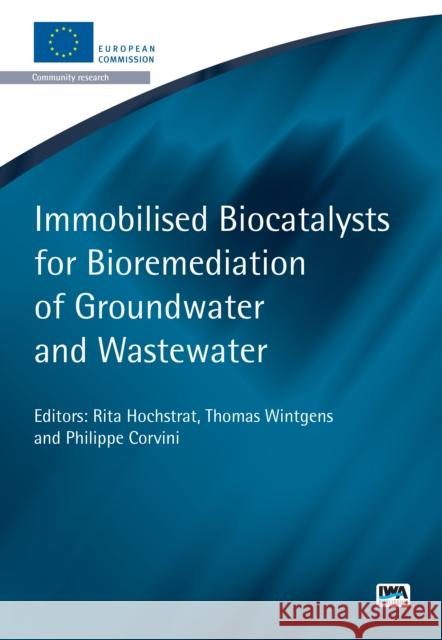Immobilised Biocatalysts for Bioremediation of Groundwater and Wastewater » książka
Immobilised Biocatalysts for Bioremediation of Groundwater and Wastewater
ISBN-13: 9781780406459 / Angielski / Miękka / 2015 / 178 str.
The European project MINOTAURUS explored innovative bio-processes to eliminate emerging and classic organic pollutants. These bio-processes are all based on the concept of immobilization of biocatalysts (microorganisms and enzymes) and encompass bioaugmentation, enzyme technology, rhizoremediation with halophytes, and a bioelectrochemical remediation process. The immobilization-based technologies are applied as engineered ex situ treatment systems as well as natural systems in situ for the bioremediation of groundwater, wastewater and soil. The selection and application of tailored physico-chemical, molecularbiological and ecotoxicological monitoring tools combined with a rational understanding of engineering, enzymology and microbial physiology is a pertinent approach to open the black-box of the selected technologies. Reliable process monitoring constitutes the basis for developing and refining biodegradation kinetics models, which in turn improve the predictability of performances to be achieved with technologies.
Immobilised Biocatalysts for Bioremediation of Groundwater and Wastewater delivers insight into the concepts and performance of a series of remediation approaches. A key strength of this book is to deliver results from lab-scale through to piloting at different European reference sites. It further suggests frameworks for structuring and making evidence-based decisions for the most appropriate bioremediation measures.
The European project MINOTAURUS explored innovative bio-processes to eliminate emerging and classic organic pollutants. These bio-processes are all based on the concept of immobilization of biocatalysts (microorganisms and enzymes) and encompass bioaugmentation, enzyme technology, rhizoremediation with halophytes, and a bioelectrochemical remediation process.The immobilization-based technologies are applied as engineered ex situ treatment systems as well as natural systems in situ for the bioremediation of groundwater, wastewater and soil. The selection and application of tailored physico-chemical, molecularbiological and ecotoxicological monitoring tools combined with a rational understanding of engineering, enzymology and microbial physiology is a pertinent approach to open the black-box of the selected technologies. Reliable process monitoring constitutes the basis for developing and refining biodegradation kinetics models, which in turn improve the predictability of performances to be achieved with technologies.Immobilized Biocatalysts for Bioremediation of Groundwater and Wastewater delivers insight into the concepts and performance of a series of remediation approaches. A key strength of this book is to deliver results from lab-scale through to piloting at different European reference sites. It further suggests frameworks for structuring and making evidence-based decisions for the most appropriate bioremediation measures.











